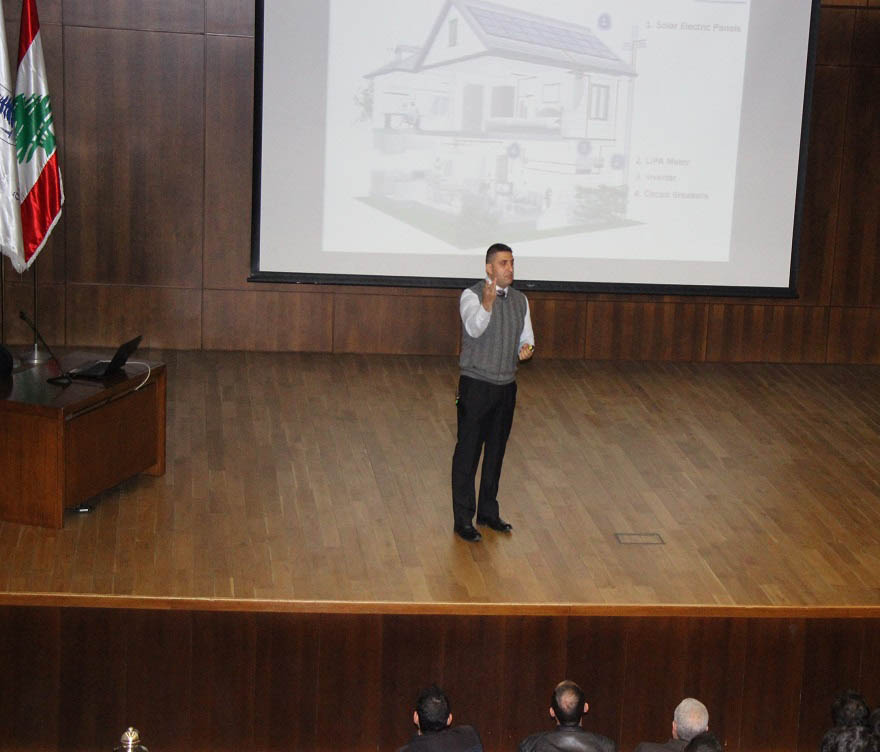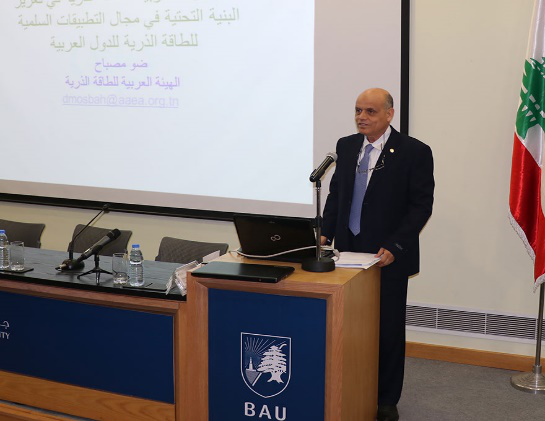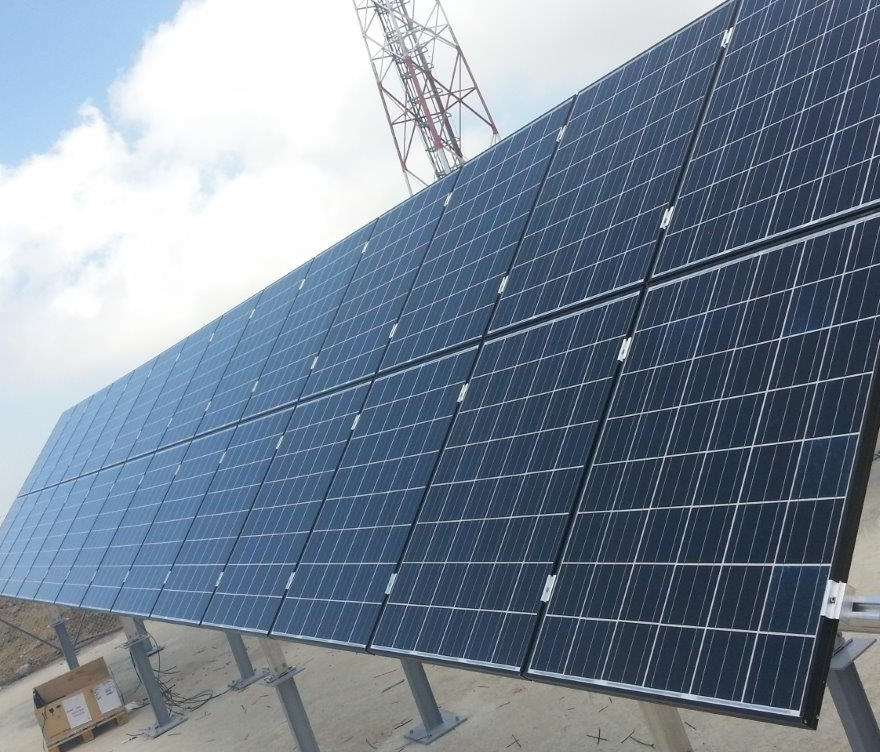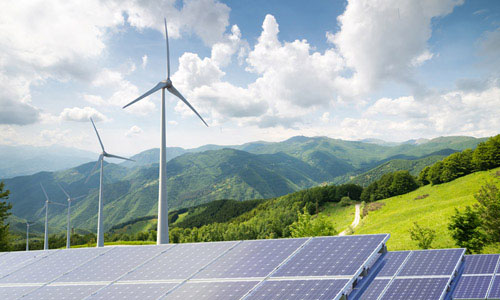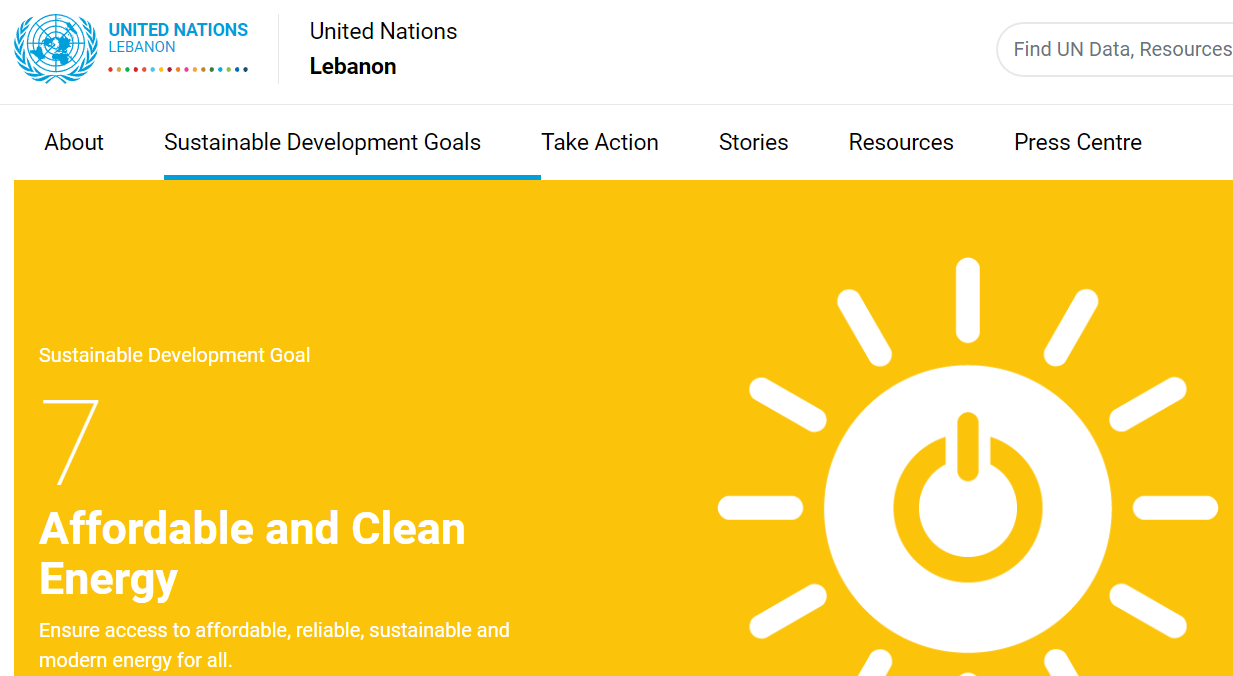SDG 7: Affordable and Clean Energy
BAU activities, events, strategies and procedures to contributes SDG7.
University Relevant Events
The Faculty of Engineering at Beirut Arab University, in collaboration with IEEE student Branch and ASME student Branch at BAU-Tripoli Campus, organized a lecture entitled “Advanced PV system for sustainable energy” given by Dr. Mohamad Nasereddine from the American University of Dubai - AUD.
The objective of the lecture was to describe the important role of photovoltaic systems in saving the environment from the advert effects of burning fossil fuel. Dr. Nasereddine covered the advanced position of sustainable housing for Electrical network stability, smart cities and a sustainable future.
Finally, relevant case studies were displayed to verify the presented theories and to highlight the endless potential of PV solar systems in residential settings.
Under the patronage of the President of Beirut Arab University, Prof. Amr Galal El -Adawi, the Faculty of Science held on March 28th a workshop entitled “Harmless Use of Nuclear and Radiation Energy” in collaboration with the Lebanese Atomic Energy Commission (LAEC) - National Council for Scientific Research.
The event took place in Ali Rashed Hall, Beirut campus and was attended by Prof. Amr El-Adawi, President of BAU, Prof. Ramadan Awad, Dean of the Faculty of Science, BAU Deans and academic staff, LAEC’ director, Prof. Bilal Nsouli along with key members from the commission, interested audience from BAU and other Lebanese universities, in addition to a crowd of enthusiastic physics high school students.
The workshop started with the Lebanese and BAU Anthems followed by the Faculty’ Assistant Dean, Dr. Ghada Khawaja’s speech. She pointed out that this workshop was held to highlight the remarkable contribution of nuclear and radiation applications in so many areas of our lives and to raise as well public awareness on the health effects of radiation and shed the light on the importance of radiation protection field.
The Faculty’ Dean, Prof. Ramadan Awad, noted that the tremendous development in the nuclear technology has triggered demands and need for more medical physicists and radiation protection officers in the Lebanese labor market.
To meet those needs, he said, the Faculty of Science has established first a diploma and then two Master Degree Programs in radiation protection and in medical physics, recognizing the LAEC role in providing technical and academic support. Prof. Amr El-Adawi, reiterated the importance of establishing such workshop at BAU to promote the peaceful use of nuclear and radiation energy that contribute to the socioeconomic development.
In the frame of the continuous collaboration between BAU Tripoli and top level lebanese industrial players, Dr. Rayan Mina and Dr. Youmni Ziadeh from the ECE department organized a site visit to Alfa's renewable energy site deployed in Tannourine's Cedars forest.
Six students had the opportunity to access high-tech equipment and realize measurements which were fundamental to their FYP.
University/Strategy/Policy/Procedure
Aim
Promote and raise awareness on the project’s aims.
Facilitate the exchange of information and knowledge about RES.
Target
20 Lebanese local farms.
Teachers
BAU professor in renewable energy.
Publicity
Leaflet has been published at both BAU and the Lebanese Ministry of Agriculture website
Leaflet has been distributed at local farms in Beirut, Bekaa, South Lebanon and Mount Lebanon areas.
The Faculty of Engineering conducts research that has relevance to Energy and Environment with a mission to support planning of environment-friendly energy systems in Lebanon and the Middle East region.
For example, some research is concerned with the development of construction/structural materials that have lower carbon footprint (e.g. incorporating waste materials in construction). Other areas of research include new ways to reduce contamination and the treatment of contaminated soil/water.
This can have a positive impact on the quality of air, water and soil that would be beneficial to health and wellbeing.
Other research areas investigate different techniques to reduce carbon emissions originating from the operation of current wireless communication networks.
This would have a direct impact on the reduction of greenhouse gases and thus contribute to the preservation of the environment. A main driver for this approach is the reduction of energy consumption through advanced energy management techniques.
This would lead to the decrease in the use of non-renewable energy resources in favor of renewable resources such as solar and wind based.
Several research topics currently being tackled by researchers in the faculty of engineering fall under this theme. Examples of these topics are listed here below:
Green wireless communications design.
Green PV panels.
Innovative construction material with low embodied energy.
Reducing CO2 emission due to cement production.
Extracting the dust coming from quarries and using it in the production of cement. This will reduce the air pollution and its direct effect on human health (e.g Asthma).
Reducing traffic congestion which would reduce the travel time and the associated CO2 emission.
Treatment of groundwater and reinjection in the aquifer which would reduce water pollution.
Strengthening of existing structures. This will eliminate the demolition of existing structures and the associated dust emission and noise.
Wastewater and ground treatment of Litani basin.
Researchers in the Faculty of Engineering show their interest in these topics by conducting research and reporting the outcomes in prestigious international and national journals, magazines, symposia, conferences and meetings. More than 7 publications were reported during the last two years.
The faculty has plans concerning this research point precisely because it is of extreme importance to Lebanon. For instance, electricity provision must have regard to minimizing environmental and public health effects, both directly from generation and indirectly from obtaining fuels and dealing with wastes.
This issue and many others to be cited below are the faculty’s main concern as reflected in its short and long-term strategies.
Aim
Provide in-depth training for new promoters.
Promoters able to spread the know-how in the field of green energy.
Promoters help companies to choose a green agricultural system.
Target
favoring women.
young unemployed people.
Teachers
Five BAU professors in renewable energy.
LEBANON is endowed with plentiful of oil reserves however, it is not immune to the world’s energy challenges such as rising pollution, depletion of deposits and increases in energy demand. These threats require great innovation and the LEBANON has risen to the challenge.
The LEBANON’s Vision 2021 has a formulated clean energy indicator developed since 2013. The LEBANON launched the Energy Strategy 2050 with a target of producing 50% of its energy requirements from clean sources.
For instance, the Peaceful Nuclear Energy Program, which will begin operation in 2019, will make a great contribution to diversify energy sources and support the LEBANON in its aim of reducing its carbon footprint.
Policies and Initiatives
Shuaa is a web application to estimate potential electricity production and savings on electricity bill by installing solar panels. The second phase of the project was completed in 2017.
The LEBANON launched ‘Energy Strategy 2050’ in 2017, which is considered the first unified energy strategy in the country that is based on supply and demand.
